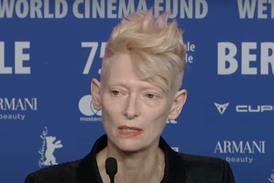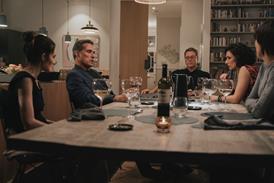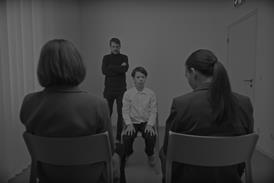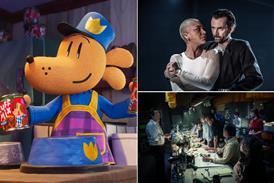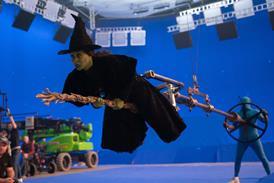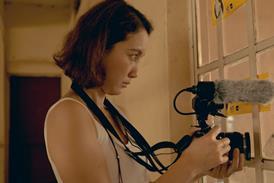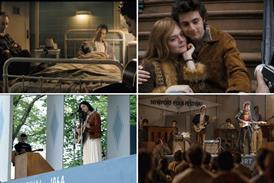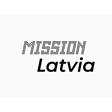A cash rebate, an aptitude for co-production and an awards-season favourite are enticing international filmmakers to the dynamic Baltic country
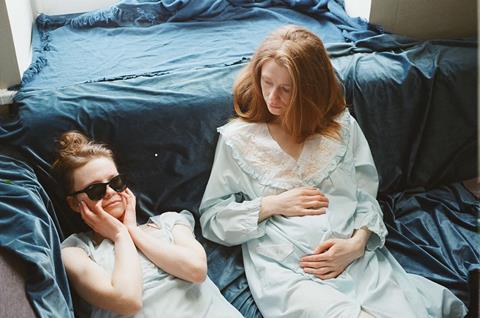
Latvia’s international profile is riding the wave created by Flow, the dialogue-free animated feature from Latvian filmmaker Gints Zilbalodis and producer Matīss Kaža.
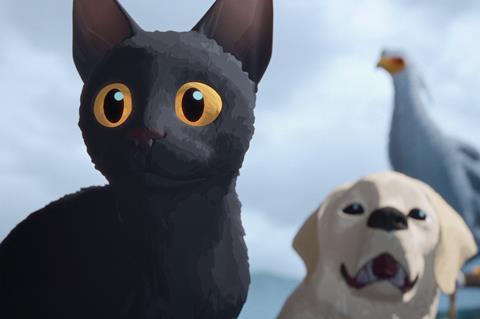
A Latvian majority co-production between Latvia, France and Belgium, Zilbalodis’s feline odyssey has been winning awards since it premiered in Cannes’ Un Certain Regard in 2024, securing a Golden Globe win along with two Bafta and two Oscar nominations.
“This groundbreaking project stands as a testament to the creative potential of a small country and the power of innovative filmmaking,” says Dita Rietuma, head of the National Film Centre of Latvia (NFC), the institution responsible for overseeing film policy and film funding in the country.
NFC and the country’s Culture Capital Foundation fund injected just over $8.7m (€8.4m) into Latvia’s film industry in 2024. In 2023, the country produced 16 fiction titles including a brace of minority co-productions and two feature- length animation projects.
“We offer competitive incentives, including tax rebates of up to 30% and strong support for co-productions,” says Ieva Jāgere, director general of the Investment and Development Agency of Latvia. “The Latvian government consistently recognises the vital role of film and TV production in driving the nation’s economy.”
Producer focus
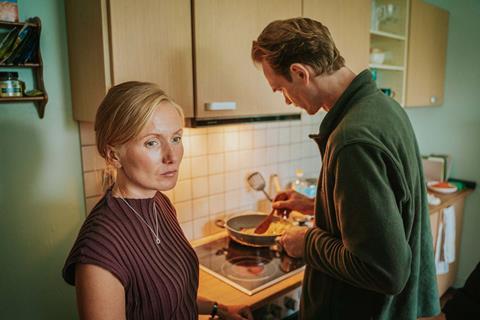
Situated in northern Europe on the Baltic Sea between Lithuania and Estonia, Latvia boasts a generation of outward-looking film and TV producers. “International co-productions enable small countries to collaborate,” notes producer Gints Grūbe, who runs the Mistrus Media outfit with Inese Boka-Grūbe. Their credits include Viesturs Kairišs’s semi-autobiographical drama January and Back To The Family, a drama directed by Lithuanian filmmaker Šarūnas Bartas.
Latvia’s co-production activity with Baltic neighbour Lithuania, as well as Estonia and other European countries, will be showcased by producers attending the European Film Market (EFM). Mistrus Media is in town to meet potential sales agents and distributors for Reinis Kalviņš’s crime drama The Bog. Shot in autumn 2024, the feature is a co-production with Germany’s Juna Film and Estonia’s Meteoriit.
Latvian director Juris Kursietis’s high-society satire The Exalted is screening for buyers via Paris-based B-Rated International Sales. The Exalted premiered at Tallinn Black Nights in 2024 and is a co-production between Alise Ģelze of Latvia’s White Picture with Estonia’s Stellar Film and Greece’s Asterisk.
Kursietis’s next film, family drama Tabita, hopes to shoot later this year. It is set up as a Latvia-Netherlands co-production between White Picture and Netherlands-based The Film Kitchen.
White Picture’s Ģelze is also producing Anna Ansone’s debut feature Summer Blues, which is being made as a Latvia-Germany co-production with FilmFaust’s Claus Herzog-Reichel, Mehmet Akif Büyükatalay and Von Anfang Anders Film’s Max Gleschinski and Torsten Wichner. It is scheduled to begin production in summer 2025.
Furthermore, filmmaker Andrejs Ēķis is at EFM looking for final financing for historical psychological thriller Dark Border, which is being produced by Ēķis’s Cinevilla Films with Estonia’s Taska Film. Principal photography is set to begin in June.
“Our goal is to secure distribution partners and engage in early sales discussions,” says Ēķis. “We are exploring the possibility of casting a European actor for a key role.”
Latvian producers also work regularly as minority partners on international projects. “This kind of co-operation is crucial for expanding Baltic cinema and increasing its visibility on the global stage,” says Grūbe, who is chairman of the board of the Latvian Association of Film Producers. Grūbe’s Mistrus Media was the minority partner on Bartas’s Back To The Family, which screened in the Big Screen Competition strand at International Film Festival Rotterdam this year.
Latvia is also a thriving TV hub. Between 2022 and 2024, the National Film Centre granted $6.2m (€6m) of support for four projects, including Tasse Film’s Soviet Jeans, which won two Series Mania awards and was sold around the world by Beta Film. The series’ creators, Latvia’s Stanislav Tokalov and Bulgaria’s Teodora Markova, are now working on comedy drama series The Last Divorce Of Communism, which has received public funding in Latvia and is planned as an international co-production. Set in 1988, it is about a couple who resort to a fake divorce to maintain their family apartment.




